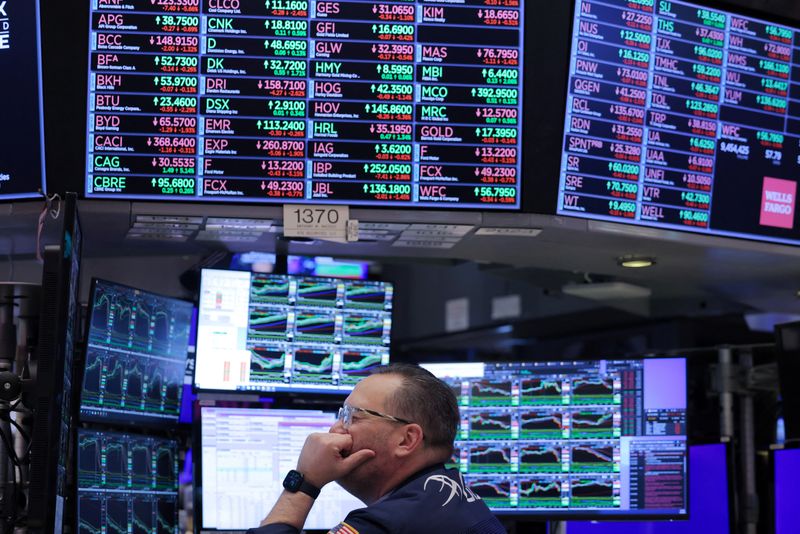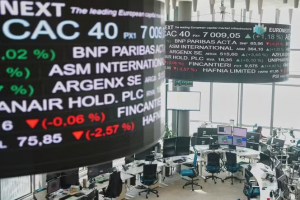U.S. stocks could drop by between 10% and 13% this year, dragged down by a selloff in seven mega-cap stocks that previously pushed broader markets to record highs, a senior executive at Morgan Stanley Investment Management (MSIM) told Reuters. "The market valuations on a standalone basis look extended, and therefore an annual drawdown or correction of 10% to 13% is very possible," Jitania Kandhari, deputy chief investment officer of MSIM's solutions and multi-asset group, said in an interview.
The seven mega-cap stocks, also referred to as the Magnificent Seven, are Microsoft (NASDAQ:MSFT), Apple (NASDAQ:AAPL), Alphabet (NASDAQ:GOOGL), Amazon (NASDAQ:AMZN), Nvidia (NASDAQ:NVDA), Meta Platforms (NASDAQ:META) and Tesla (NASDAQ:TSLA).
"We will begin to see the convergence between the rest of the market and mega 7, and that will continue," said Kandhari. MSIM manages $1.5 trillion in assets.
Still, large technology companies are generating cash and have stronger businesses than those which typically led other bouts of market weakness, she said.
The predicted declines will probably be more orderly than the dramatic losses in the early 2000s, when the dotcom bubble burst for tech companies that had bloated valuations.
"I don't expect a 1999-2000 kind of tech correction in the NASDAQ this time," she said.
MSIM is underweight technology stocks.
U.S. stocks are more expensive relative to their global peers, Kandhari added. The S&P 500 index is trading at a multiple of about 21 times forward earnings.
"If we have earnings growth that surfaces, then that number can go up," Kandhari said. "But given current traction, 16.5 to 17 times is a good number on the S&P."
The technology-fuelled Nasdaq Composite is trading at 28 times forward earnings, exceeding the MSCI All Country World Price Index, which trades at 18 times.
The S&P 500 index closed at 5,463.54 points on Monday, down 3.6% from a record close at 5,667.20 on July 16.
Industrial stocks are currently attractive, Kandhari said. Shares of companies producing consumer staples and discretionary goods are also appealing, given Americans' resilient spending.
"The interest rate sensitivity of the economy has come down," Kandhari said. "Corporates have borrowed long term therefore higher rates have not affected them as much as people had anticipated."
MSIM is also buying more financial stocks, which are benefiting from a steeper yield curve in U.S. Treasuries, Kandhari said. Short-term yields have declined faster than long-term yields in recent weeks.
Still, the curve is currently inverted, with short-term yields higher than long-term debt. A return to an upward-sloping yield curve would reduce funding costs for banks and encourage more lending.













